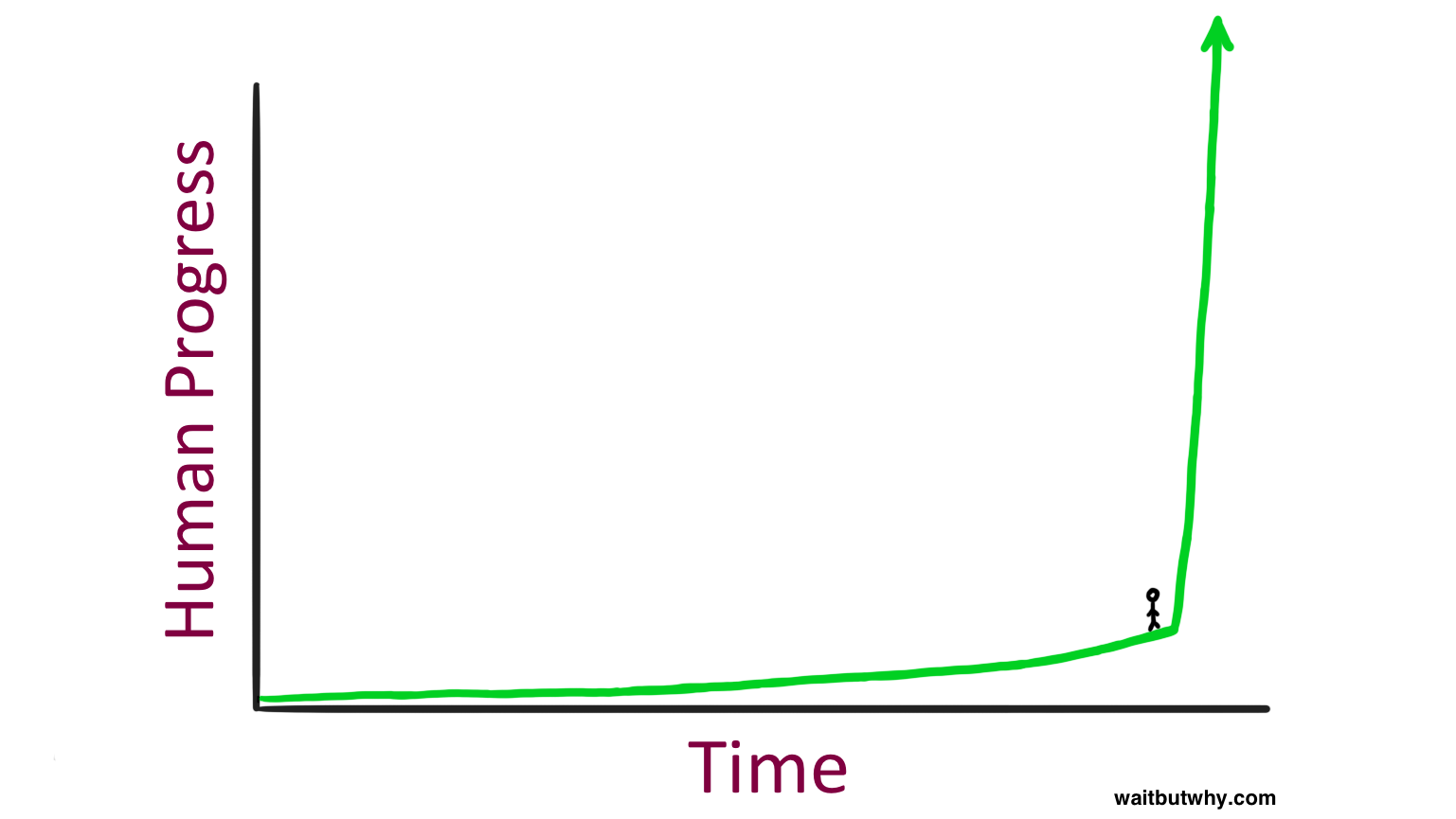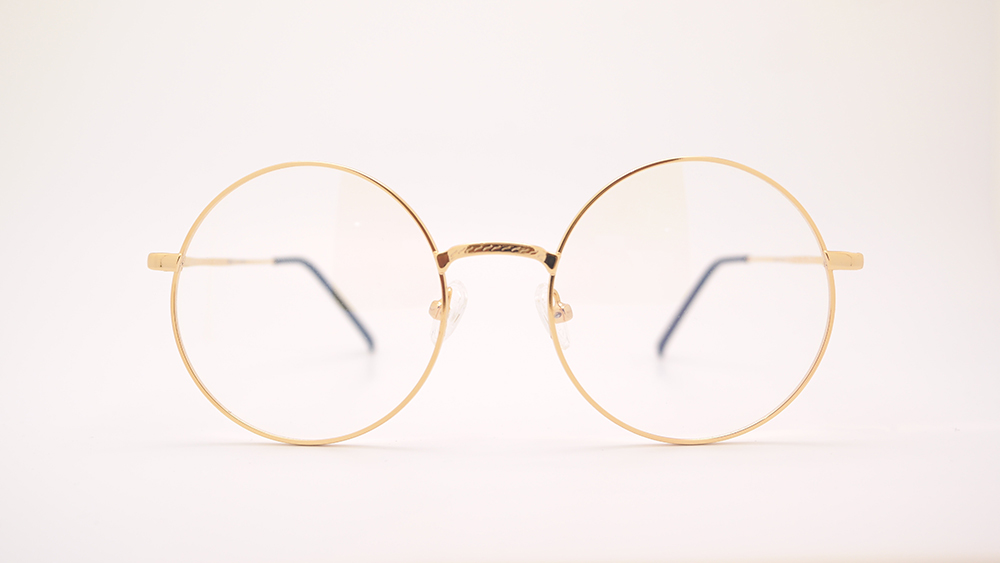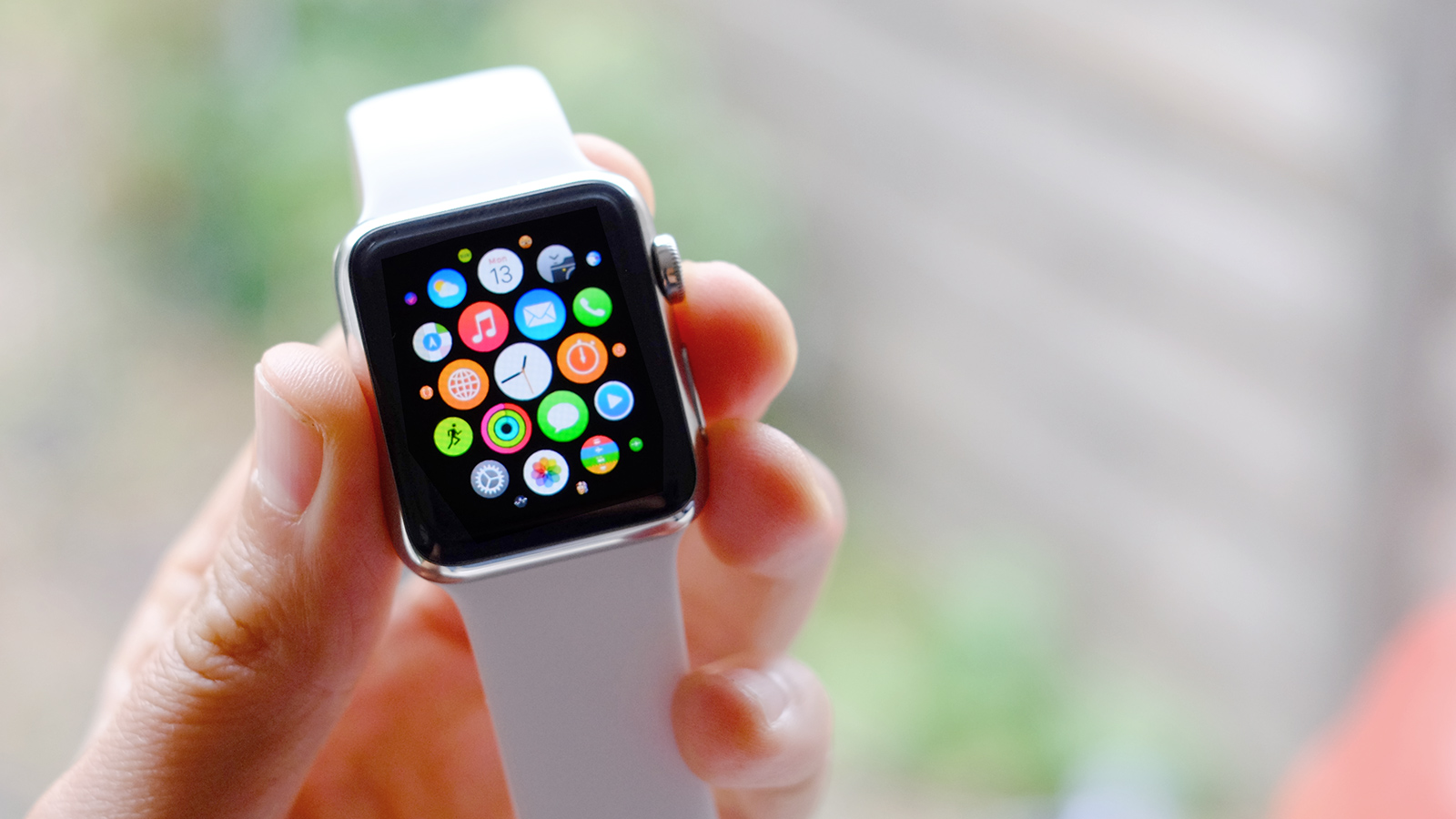Why we might miss out if tech moved any faster
Some ideas just don't need improving on

Main image credit: AT&T
The tech industry never seems to take its foot off the gas. Where it used to take years for a product to be designed, tested, refined and released, we now have six-month or even shorter release cycles for smartphones, and the time between one major step forward and the next keeps shrinking.
The blog Wait, But Why sums it up pretty well in the graph below. But while we may instinctively feel like faster progress is a good thing, there's a downside. When we near-instantly work out how to get from A to C, we miss out B – and sometimes B is something really good. In fact, a lot of the products we use every day just wouldn't exist if progress moved faster.
- Do you have a brilliant idea for the next great tech innovation? Enter our Tech Innovation for the Future competition and you could win up to £10,000!

Seeing is believing
Take glasses, for instance.
Spectacles – vision-correcting eyeglasses, that is, not the camera-toting things Snapchat flog – have been around since antiquity, in one form or another. According to Renaissance Vision: From Spectacles to Telescopes by Vincent Ilardi, we don't, and will probably never know for certain, who invented them, but we can put a rough pin in the date.
Ilardi quotes a 1306 sermon from a well-known preacher, Friar Giordano da Pisa, that claims "It is not yet twenty years since there was found the art of making eyeglasses, which make for good vision, one of the best arts and most necessary that the world has" (well said). This, and other sources, put the original glasses at roughly 1290, the best part of a millennium ago.

While progress was far slower in those days, you'd think glasses would have ceased to exist in the intervening 700-odd years, since we should have fixed the original problem: malfunctioning eyes. And indeed we mostly have: workable contact lenses have been around since the late 19th century, and laser eye surgery has come on in leaps and bounds since the first experiments with cutting corneal flaps in the 1950s.
Sign up for breaking news, reviews, opinion, top tech deals, and more.
So why haven't glasses disappeared? Obviously partly because the alternatives aren't for everyone, for medical and financial reasons, but also because we really like them. Countless people wear glasses for aesthetic reasons, and 'plano' (plain glass) versions of prescription specs are widely available.
There are no sides in streaming
Or take music. Currently, my Google Home is playing Tame Impala's 2017 release Currents, subtitled B-sides and remixes. The entire concept of a B-side track only exists because records, and then of course cassettes, offered two sides for recording on. Mainstream music barely touches physical media these days, yet bands still release 'B-sides', benefiting from the universal understanding of 'a song that will never crack the charts, but may still become your favorite'.

Younger listeners may not understand the origin of the name (nor how annoying it was to have to rewind the cassette to hear the radio edit when you were on the third terrible remix), but the fact that the concept has stuck around clearly shows it has value. If music recording and distribution had skipped physical media, it would have skipped B-sides too. Not to mention the delight that is placing a treasured piece of vinyl on a high-end turntable.
The tech we might have missed
It's not just consumers that lose out when we strive to make giant leaps without considering the small steps in between. It's the tech companies themselves. If we'd never invented glasses, Google Glass would have been an even harder sell, if it had happened at all. Ditto watches and smartwatches.
If we'd gone straight to voice calls – or holograms, virtual reality, or telepresence robots – would the text-based internet that powers sites like Twitter and Reddit ever have come to be? If we could have gone straight to videos (or even gifs), would we have bothered inventing the still photographs that have brought so much joy and meaning to our lives? Would the great masters have had the chance to develop their skills if the subjects paying them to paint portraits could take a selfie instead?

And that's to say nothing of the products discovered by accident during the laborious invention process. We've all had the experience of taking a wrong turn and finding something amazing – the discovery of America while looking for Asia being perhaps the most famous pre-GPS example. The more we prioritize getting where we're going as fast as possible, the fewer turns we take along the way, and the more we squeeze the space for serendipity out of our lives.
It might be a Pinterest cliché to write 'SLOW DOWN!' on a Post-It, but considering Post-Its were discovered while trying to invent a new superglue, it's just about perfect.
TechRadar's Next Up series is brought to you in association with Honor
